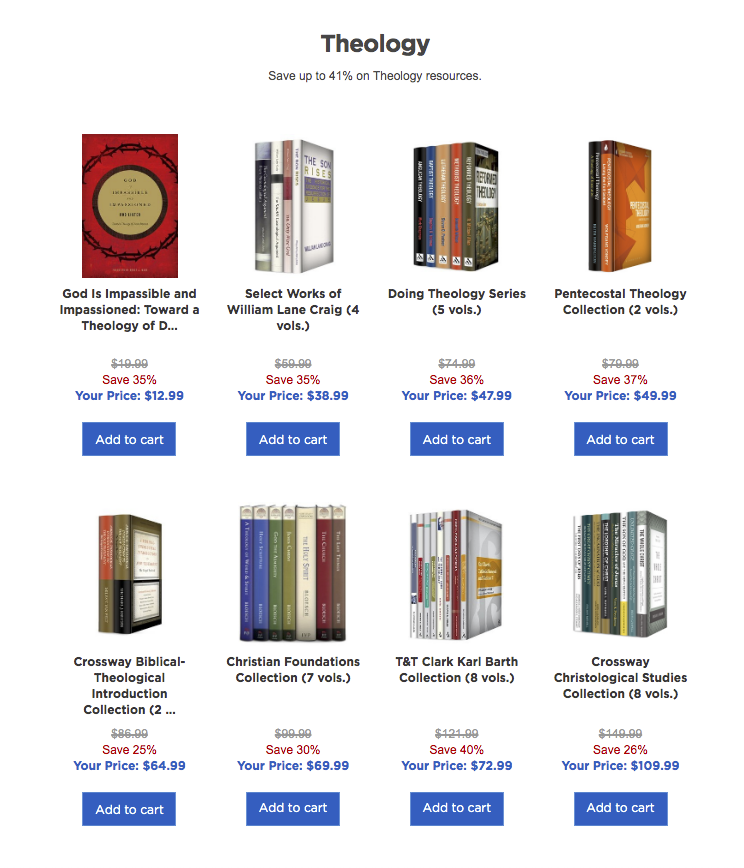
“What makes a good theologian or biblical scholar?” Many things could be said about this question, involving a range of both academic and personal qualifications. Here I’ll just offer a few suggestions—this is by no means an exhaustive list, and I should mention up front that these values assume a level of Christian commitment.
1) A Humble Heart
I can think of no finer criterion for what makes a good theologian than what the Almighty says in Isaiah 66:2: “this is the one to whom I will look: he who is humble and contrite in spirit and trembles at my word.” It is frighteningly easy to engage in theology and study of the Bible without humility, without trembling. Yet all the intelligence and technical expertise in the world are pointless if they are not accompanied by a humble heart. It is only within the posture of humility that God can be known at all. “God opposes the proud but gives grace to the humble” (James 4:6).
As St. Augustine put it, “if you should ask me what are the ways of God, I would tell you that the first is humility, the second is humility, and the third is humility. Not that there are no other precepts to give, but if humility does not precede all that we do, our efforts our meaningless.”
2) Hard Work
There are no short cuts to being a good theologian or biblical scholar. It is not acquired by learning a particular technique, and it is not fueled by a burst of adrenaline. It is a matter of diligent work over long spans of time, and is best fueled by a genuine curiosity in the subject matter. Being a good theologian or scholar will involve the development and continual honing of a set of skills in your area of expertise, using the full range of scholarly resources available to you—mastering the literature in the field, learning the relevant languages, and so forth. All this is very hard work.
The good news is, when you passionately enjoy your work, it doesn’t always feel like hard work. So try to have fun!
3) Avoiding over-specialization
One of the unfortunate and somewhat artificial characteristics of contemporary biblical and theological studies is the overly rigid division of scholarship into distinct fields. Happily, there are pockets of resistance to this these days, so that biblical scholars are trying to learn from theologians, and theologians from biblical scholars, and so forth. But the general situation remains.
A good student of the Bible and theology should recognize that because truth is one, overspecialization inevitably distorts. Of course, we cannot study everything all at once, so we have to specialize to some extent. But we should also recognize that our own area of expertise cannot be absolutely sliced off from other fields of scholarship, and we should be open to dialogue and learning from others.
So, if you are a Reformation scholar, dip into the church fathers that interest you now and again. If you are a Pauline scholar, don’t hesitate to dip into the scholarly conversation about the identity of the Nephilim in Genesis 6, if that interests you. If you’re a systematician, try your hand at a biblical commentary when you have the opportunity.
While you’re at it, the more you read history and literature more broadly, and the more you engage intellectually wherever your curiosity happens take you, the better scholar you will be for it. You may be amazed at the connections you discover.
4) Remembering Your Blind Spots
Wisdom requires cultivating a keen sensitivity to the fact that you have blind spots. You don’t see everything perfectly. This means that you must navigate life and theology with sensitivity to the distinction between what you don’t know, and what you don’t know that you don’t know.
It is often not sheer ignorance that will get you, but ignorance about your ignorance: not the unchartered territory, but the stuff that is completely off your map.
Much theological error happens not because of an outright error, but because of insensitivity to a broader range of concerns. So when you hear something strange, listen very carefully. When you are fielding criticism, give it time before you make up your mind how to respond. And keep open to new insights and breakthroughs coming from unexpected directions.
5) Full-blooded sincerity
Being a good scholar takes courage. It requires being more concerned for the truth than the social and career consequences of your work. True advances are made by those who are willing to buck the party line, to challenge the status quo, to stand contra mundum when the need of the hour requires.
Related to this, studying the Bible and theology has a deeply existential aspect to it. Ultimately, it is a coram Deo matter that we engage in before God, involving not just our thoughts but our entire selves. As Calvin put it in the Institutes, “recognition of [God] consists more in living experience than in vain and high-flown speculation.” Ultimately, being a good theologian or biblical scholar involves not just how you think, but who you are.

Gavin Ortlund (PhD, Fuller Theological Seminary) is a husband, father, pastor, and writer. He serves as senior pastor of First Baptist Church of Ojai in Ojai, California. Gavin blogs regularly at Soliloquium. You can follow him on Twitter.







[…] via Gavin Ortlund on “What makes a good Biblical Scholar or Theologian?” — theLAB […]